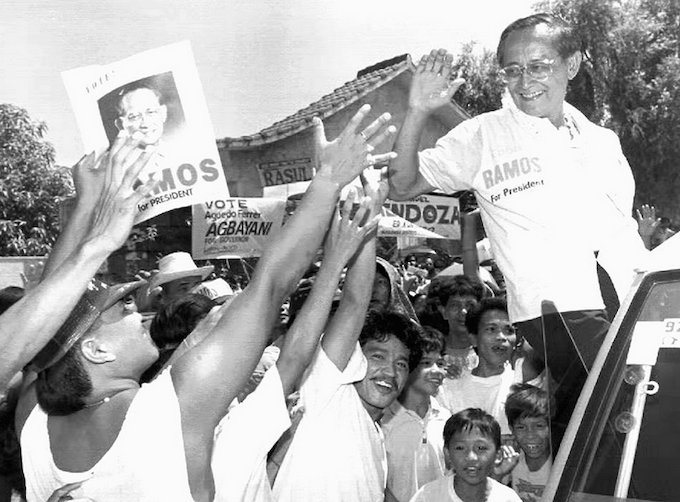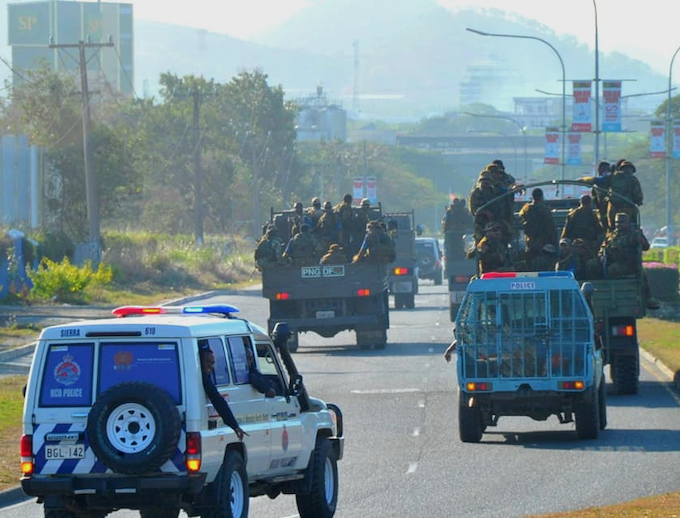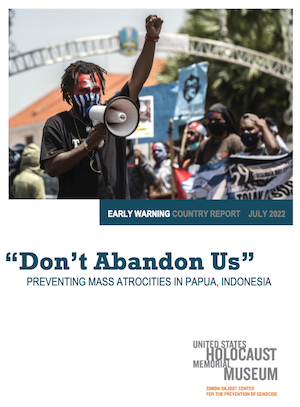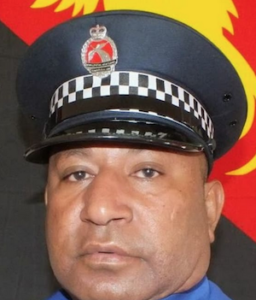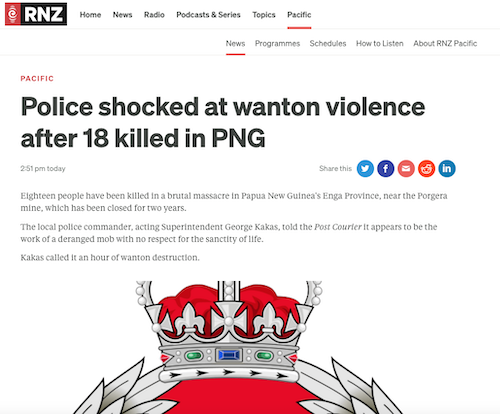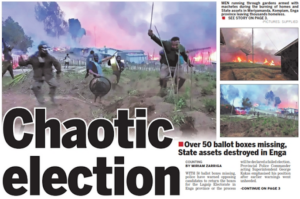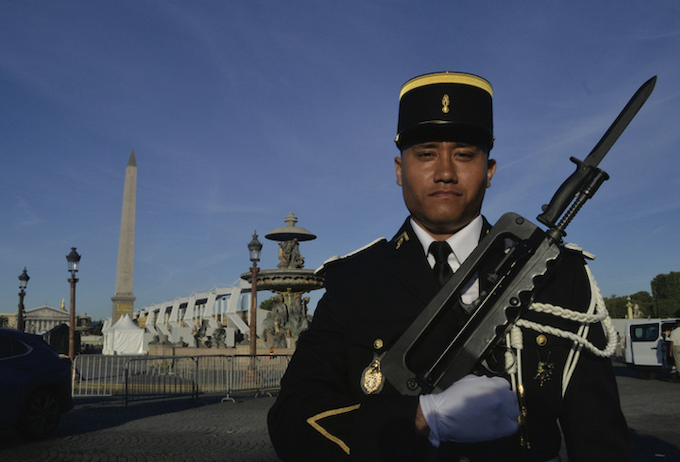by Umar Farooq
ProPublica is a nonprofit newsroom that investigates abuses of power. Sign up to receive our biggest stories as soon as they’re published.
Ethiopian Prime Minister Abiy Ahmed was in a tough spot last August when he paid a visit to Turkey. For nearly a year, his government had been at war with rebels from the Tigray People’s Liberation Front, which was now pushing south from its stronghold near the Eritrean border and threatening to move on the country’s capital of Addis Ababa. Thousands had already been killed, and the United States and the United Nations had accused all the warring parties of blockading aid, committing sexual assault and deliberately targeting civilians.
With only a small, aging fleet of Soviet-era military jets, Abiy needed a way to quickly — and cheaply — expand his air campaign against the rebels. Turkey had just the solution: a military drone known as the TB2 that could be piloted from nearly 200 miles away. China and Iran also supplied drones, but the TB2, outfitted with cutting-edge technology, had fast become the new favorite of the world’s embattled nations, helping to win wars even when it was pitted against major powers.
On Aug. 18, Abiy met Turkish President Recep Tayyip Erdoğan to sign a military pact. It’s unclear whether drones were part of the agreement. But two days after the signing, publicly available flight records showed that an Ethiopian Airlines charter flight took off from Tekirdağ, an hour’s drive west of Istanbul, at an airstrip known for testing and exporting the Turkish drones. It was the first of at least three such runs over roughly a month, the records show. Neither the Turkish nor the Ethiopian governments responded to questions about the flights, but officials in Turkey have previously acknowledged drone sales to Ethiopia.
Within months, Turkish-made drones, as well as ones made by China and Iran, hovered over crowded town centers across rebel-held Ethiopia, watching those below before launching missiles at them. News seeped out of towns like Alamata and Mlazat that the drones’ missiles were killing not just suspected rebels but dozens of people, many of them civilians, as they rode buses or shopped in markets. Human rights groups took note of armed drones in the skies and examined images of missile fragments from airstrikes to try to identify exactly what aircraft were involved, hoping that publicly naming their origin would prompt the sellers to reconsider their actions.
As the death toll mounted, the Biden administration, which had authorized sanctions against any party involved in the fighting, said it had “profound humanitarian concerns” over Turkey’s drone sales to Ethiopia. And U.S. officials meeting with their Turkish counterparts raised reports of drone use in the conflict. But there the warnings stopped. Unlike its decisive actions targeting drone programs in China and Iran, Washington took no further action against the program in Turkey, a NATO ally.
So the Ethiopian air campaign continued, including a strike by a Turkish-made drone on a camp for displaced civilians in Dedebit that killed 59 people and attracted widespread condemnation. The bloodshed again drew a rebuke from the U.S., this time directed at Ethiopia. President Joe Biden called Abiy and “expressed concern that the ongoing hostilities, including recent air strikes, continue to cause civilian casualties and suffering,” according to a White House summary of the conversation. Little changed, and by late February, about six months after Abiy’s visit to Turkey, at least 304 civilians were dead from airstrikes, according to the U.N.
The Ethiopian government did not respond to requests for comment, but authorities have previously denied targeting civilians in the war.
A drone expert with the anti-weapons-proliferation group Pax flagged an aircraft that he identified as a TB2 drone in satellite imagery of Ethiopia’s Bahir Dar air force base from December 2021.
(Screenshot from Twitter)
Today, much of the discussion around the TB2 drone centers on Ukraine, where it is playing a pivotal role in the war against Russia. Ukraine has put out a steady stream of propaganda videos that show TB2s taking out equipment like surface-to-air missiles and helping other aircraft and artillery target Moscow’s forces. Some lawmakers in Congress have even cast the drone as a crucial weapon and are pushing for the U.S. to help Ukraine buy more. In Lithuania, a recent crowdfunding campaign raised $5.4 million in three and a half days to help Ukraine purchase another TB2.
But the public relations blitz obscures growing concerns around the world about Turkey and the proliferation of a weapon that is changing the nature of modern warfare. At least 14 countries now own TB2s, and another 16 are seeking to purchase them. The technology offers even the smallest militaries the capacity to inflict the kind of damage that was once the exclusive province of wealthy, Western nations, and Turkey seems eager to expand global sales of the weapon.
“They are a game changer,” said Richard Speier, a former Defense Department official who drafted and negotiated a key international agreement that now governs the sale of armed drones. “It’s going to be necessary to take account of them and put a lot of effort in dealing with the drone problem … [because] you can do things on a small budget that you couldn’t do before.”
Amid the criticism, Turkish officials, along with the drone maker itself, Baykar Technology, have defended the TB2 as a critical tool for developing nations and embattled democracies like Ukraine. The drone “is doing what it was supposed to do — taking out some of the most advanced anti-aircraft systems and advanced artillery systems and armored vehicles,” Selçuk Bayraktar, the firm’s chief technology officer, told Reuters in May. “The whole world is a customer.”
Officials tout the drone as the product of Turkish industry, with nearly all of its components coming from within Turkey. But time and again, wreckage from downed drones in multiple conflicts have shown otherwise. In fact, a whole range of components — from antennas to fuel pumps to missile batteries — were made by manufacturers in the U.S., Canada and Europe, according to images of wreckage examined by ProPublica and statements by companies, some of whom have acknowledged sales to Turkey.
Some lawmakers have called on the Biden administration to pressure Turkey to restrict sales of the drone by suspending exports of U.S. technology that could be used in the uncrewed aircraft. They argue that the drones and their missiles are sparking more instability around the world, and, in some cases, violating American and international arms embargoes meant to contain wars like the conflict in Ethiopia.
“Turkey’s drone sales are dangerous, destabilizing and a threat to peace and human rights,” said Sen. Robert Menendez last year, as he pushed for an investigation into whether U.S. exports are being used in the Turkish drones. “The U.S. should have no part of it.” Menendez’s office did not respond to a request for comment for this story.
It’s unclear, though, whether the Biden administration will take any further action. A spokesperson for the State Department declined to answer questions for this story, providing only a general statement about arms sales. “We encourage all countries to abide by U.N. arms embargoes, avoid arms transfers to persons who are sanctioned by the United States or the United Nations, and avoid destabilizing arms transfers,” it read.
To better understand how Western technology has made its way into Turkey’s armed drones, ProPublica reviewed videos and photos of TB2s released by media outlets and government agencies, as well as reports by the United Nations and anti-arms-proliferation advocates. The news organization then compiled a list of key parts and consulted with U.S. arms experts to check whether their sale violated export regulations. They did not. Many of the components in the TB2s were commercial-grade parts found in a variety of consumer products, such as HD video cameras or self-driving cars, so they evaded the strict regulatory scrutiny applied to military parts in the U.S.
Still, other countries, including Canada, have instituted export bans that have kept some key commercial parts from flowing to Turkey. And experts say the U.S., if it chose to, could take similar measures at home and step up enforcement abroad.
Cameron Hudson, former Director for African Affairs on the National Security Council, compared the impact of drones like TB2s to the Stinger missile, the shoulder-fired weapons the U.S. distributed to mujahedeen fighters in Afghanistan in the 1980s to repel Soviet forces, then spent decades trying to recover.
“As the technology continues to improve, as they become cheaper, as they become more mobile and portable, as you need less infrastructure to operate them, they modernize conflict around the world,” he said.
The U.S. demonstrated the lethal power of armed drones in the George W. Bush and Barack Obama administrations, when officials used them for targeted killings in places like Iraq and Afghanistan. Since then, international regulators have largely focused on policing sales of larger models, like the Predator and Reaper drones used by the American military. Their primary enforcement tool: the Missile Technology Control Regime, an agreement developed toward the end of the Cold War that today has 35 signatories, including the U.S., Russia and Turkey. The pact calls on members not to sell so-called Category 1 systems, technology designed to carry missiles long distances and deliver nuclear, chemical or biological payloads.
Thus far, proliferation experts say the agreement has succeeded in stemming the flow of those kinds of weapons. But, they added, it has failed to capture the rising development of smaller drones, like the TB2.
In the last decade, China has developed its own drones and marketed them to developing countries, while Iran has expanded its drone program to help fight its proxy wars in Syria and Yemen. Israel also runs a major export operation — including surveillance and so-called kamikaze drones — though experts say the country officially restricts the sale of drones capable of firing missiles.
Turkey supercharged its own efforts after the U.S. declined to sell the country armed drones. U.S. officials were concerned about potential human rights violations, as Turkish officials planned to use the weapons in conflicts with Kurdish insurgents, said Vann Van Diepen, who helped oversee nonproliferation programs at the State Department until 2016.
The turning point came in 2015 when Bayraktar, an MIT-educated engineer who ran an armed drone program out of his father’s defense manufacturing firm in Istanbul, debuted the TB2. Using a Turkish-made missile, he held a demonstration to show that the drone could hit a target from miles away. Bayraktar, who would later marry Erdoğan’s daughter, touted the TB2s as a way for Turkey to become a global superpower without relying on U.S. drones.
For Baykar and its customers, the design had a key feature: The 40-foot-wide, 20-foot-long drone can be controlled from ground stations up to 185 miles away, just below the range that’s subject to Category 1 missile technology restrictions. The drone also has plenty of high-tech firepower. From an altitude of 18,000 feet, where it can hover for more than 24 hours, the TB2 can find and track targets, then hit them with laser-guided weapons, usually a lightweight missile called an MAM-L, made by the Turkish manufacturer Roketsan.
Bayraktar portrayed the drones as a Turkish success story, designed, manufactured and armed by Turkish companies. But it wasn’t long before people searching through the wreckage of downed drones discovered that the TB2s relied on imported parts.
In 2020, for example, amid a conflict between Azerbaijan and Armenia, images published by local media outlets and the Armenian Ministry of Defense showed parts with identifying information that matched those sold by manufacturers in other countries, including the U.S. Hardware that allowed the drones to receive GPS signals from satellites was made by Trimble, headquartered in Sunnyvale, California. The drone’s engine was made in Austria by Bombardier Recreational Products, based out of Quebec, Canada. A sophisticated, programmable microchip was made by San Jose, California-based Xilinx. The drone’s camera, perhaps the most important TB2 component, was made by Wescam, a Canadian subsidiary of L3Harris, based in Melbourne, Florida.
In the wake of the revelations, several companies, including Trimble, Bombardier and Xilinx, issued statements saying they were surprised to learn their products were being used in the conflict and had taken steps to ensure their parts no longer ended up in Baykar’s drones.
But today, key parts continue to be sourced from manufacturers based in Western countries. The German company Hensoldt, for example, told ProPublica it supplies one version of the drone’s camera. And video of TB2 strikes in Ukraine, along with Canadian export records, show the drones there still use the camera made by Wescam, according to researchers at Project Ploughshares, a Canadian anti-arms-trade nonprofit that tracks the proliferation of military technology. L3Harris, Wescam’s parent company, did not answer questions for this story, but said it “fully supports and adheres to all government export regulations applicable to our products and services used by the U.S., its allies and partners.”
Baykar declined to respond to questions about the source of key components in its drones or how it had obtained them. The company would only say that ProPublica’s questions were based on unspecified “false accusations.” In March, Bayraktar, the company’s CTO, said on social media that “93%” of the components in the TB2s are locally made.
Baykar is not unique in its use of commercial parts for its drones; many of Iran’s and China’s globally marketed drones also use parts that are not necessarily intended for military purposes. But those countries must find ways around a web of U.S. sanctions and export restrictions, so they cannot simply buy parts directly from U.S. companies. Importers in Turkey, on the other hand, are not subject to such restrictions. The country is a NATO ally and a party not only to the missile technology agreement, but also to the Wassenaar Arrangement, a broader set of voluntary guidelines set by 42 participating states seeking to control the spread of dual-use technologies that could be used for weapons that destabilize the world. Those qualifications put Turkey on a government list of countries preapproved to import many of the commercial parts found in the TB2s.
Under U.S. rules, those components “would not be controlled,” said Kevin Wolf, who helped oversee the export of dual-use technologies in the Commerce Department until 2017. “You have to rely upon the Turkish government for regulating its export to embargoed or other countries of concern.”
Turkey began using, and perfecting, the TB2s in its own war on Kurdish insurgents — the same conflict for which the U.S. had refused to provide armed drones. From 2016 to 2019, authorities trumpeted their success in press releases about strikes that “rendered ineffective” more than 400 people in the Kurdish-majority southeast of the country, where the Kurdistan Workers’ Party, or PKK, was most active. In strikes both inside Turkey and across the border in northern Syria and Iraq, the TB2s delivered massive losses to the PKK, effectively putting an end to its ability to launch attacks.
But by 2018, this posed problems for U.S. forces, which were relying on the same PKK-linked fighters in the battle against the Islamic State group in the region.
Although Turkey’s actions, including its drone strikes, did not ultimately keep the U.S. and the Kurds from defeating the group, they made the war, and its aftermath, far more complicated, said Gen. Michael Nagata, who headed U.S. Special Operations Command until 2015, then served as director of strategy for the National Counterterrorism Center until 2019.
With the proven success of its new tool, it soon became clear Turkey did not intend to keep the TB2s all to itself.
“The Whole World Is a Customer”
Countries around the globe are adding TB2s to their arsenals. At least 14 countries now own the drones, and another 16 are seeking to purchase them.
Source: News reports and statements from government officials and the drone-maker Baykar Technology
In 2019, Turkey sent TB2 drones, along with pilots to operate them, to Libya to help the Tripoli-based Government of National Accord in a complicated civil war it was fighting against Khalifa Haftar, a warlord backed by Russia, Jordan and Turkey’s regional enemies, Egypt and the United Arab Emirates. Haftar’s forces — which were themselves equipped with Chinese Wing Loong drones provided by the UAE — had mounted a major assault that threatened Tripoli, but the TB2s helped push them back.
But by supplying drones and other weapons, Turkey, as well as Jordan and the UAE, broke a U.N. arms embargo that was meant to keep the Libyan civil war from escalating, the U.N. would later say in a scathing 548-page report. The U.N. singled out the Chinese and Turkish drones — which carried out more than 1,000 strikes in the battle over Tripoli — saying they transformed the situation from “a low-intensity, low-technology conflict” into a bloody war that, by the World Health Organization’s count, killed more than a thousand people, including about 100 civilians.
The Turkish Foreign Ministry did not respond to a request for comment for this story, including on the U.N.’s finding that Turkey broke the arms embargo on Libya. Jordan and the UAE have said they are committed to complying with the U.N. arms embargo.
A cargo manifest and airway bill from a U.N. report show that drones were transferred from Turkey to Libya in May 2019.
(Source: United Nations Security Council)
Alarmed by the U.N.’s findings, Congress called for the White House to put forth a comprehensive strategy for countering the destabilizing influence of foreign powers in 2020. Senators at the time even wrote to the State Department asking it to “press the UAE, Russia, Turkey, and Jordan to halt all transfers of military equipment and personnel to Libya.”
But the White House did not take action against Turkey, or any of the other countries, over Libya. And when Azerbaijan looked to retake the long-disputed territory of Nagorno-Karabakh from its neighbor Armenia in 2020, Turkey sold its allies, the Azeris, TB2 drones. The TB2s allowed Azerbaijan to quickly control the skies and decisively win the war in just six weeks. Videos of the TB2 drone strikes became ubiquitous propaganda, put out daily by the Azerbaijan defense ministry. Some clips played on giant screens set up in public squares in the capital, Baku.
Nagata, the former special forces commander, said Libya and Nagorno-Karabakh should have been a wake-up call for the U.S. military, which was surprised when the TB2s “literally turned the tide of war there.” Beyond the strategic implications though, it should have also worried U.S. policymakers because it showed how quickly the drones were proliferating, Nagata said. “It is a harbinger of things to come, that this is going to expand beyond Turkey,” he said. “If Turkey can do this, any country with some sort of industrial manufacturing base can do this.”
Indeed, while the U.S. has focused on keeping its most advanced systems under control, Turkey, China and Israel have made hefty profits selling their own drones, which are less-sophisticated but often effective, said Max Hoffman, a former adviser to the U.N. and the House Armed Services Committee.
“The Israelis and the Chinese, and now the Turks, have really not caught up fully [to the U.S.], but exploited that middle and down market that the U.S. had let go,” Hoffman said. “And obviously Turkey has not had many scruples in who they sell the drones to.”
A military truck in Baku, Azerbaijan, carries a TB2 drone at a parade celebrating the Azerbaijani army’s victory in Nagorno-Karabakh.
(Photo by Mustafa Kamaci/Anadolu Agency via Getty Images)
Some of Turkey’s other NATO allies, including Canada, did take action, curtailing defense exports in 2019 after a Turkish incursion into northern Syria threatened to disrupt the fight against the Islamic State group.
Publicly, Turkish officials shrugged off the trade restrictions, saying the country had enough of an industrial base that it could produce what it needed on its own. But in private, Turkish officials, as well as the drone maker Baykar, pushed Canada to allow the sale of a key part: the MX-15 imaging and targeting system, which was made by Wescam. The company had received public funding from Canada, including a $75 million grant in 2015, to develop such a system. Upgraded versions of the MX-15 have been used over the years by the Predator and Reaper, and by a number of other systems by NATO partners.
The Turkish Foreign Minister told his Canadian counterpart the MX-15 would only be used on drones intended for protecting civilians in Syria against Russian attacks, and the Turkish defense ministry told Canada it would not export the cameras to any third party.
But six months later, the TB2s showed up in Azerbaijan, with Baku’s propaganda drone strike videos clearly indicating the MX-15s were being used there. Photos of crashed drones, taken by Armenian forces and posted on social media, showed that the cameras had been made in Canada as late as June 2020. This time the Trudeau government undertook a larger review, and in October 2020 it suspended all existing export permits that had allowed Wescam to ship the cameras to Turkey. Canadian officials said Turkey appeared to have broken the U.N. arms embargo on Libya and illegally exported the TB2s with the Canadian MX-15 camera system to Azerbaijan, in violation of its pledges. (L3Harris, Wescam’s parent company, did not respond to questions about the Canadian actions. At the time, Wescam declined to comment on the Armenian photographs, but it confirmed for Canadian officials that it had sold MX-15s to Turkey under a preexisting permit.)
Baykar Technology, maker of the TB2 drone, posted photos of Ukrainian President Volodymyr Zelenskyy visiting its production facility.
(Screenshot from Twitter)
Less than two weeks later, though, in an apparent bid to keep the parts flowing, Erdoğan called Trudeau and surprised him by putting Ukrainian President Volodymyr Zelenskyy on the phone. Canadian documents, released as part of an inquiry by lawmakers, show the call’s agenda included the export permits. At the time, Ukraine was seeking to add more TB2 drones to its military arsenal.
In 2020, lawmakers in Germany were also pressing to limit the Turkish drone program, said Andrej Hunko, a member of the Bundestag from the Left Party.
Hunko, who had been outspoken over the years about the U.S. drone program, joined lawmakers from the Green Party in asking the government to explain weapons sales to Turkey that they believed were connected to the TB2 drones. The government confirmed that German defense manufacturer TDW had exported missiles and parts to Turkey while another German firm, Numerics, had sold software. Hunko said he and his colleagues concluded that those sales had helped influence the design of the Turkish MAM-L missiles used by the TB2s. TDW did not answer questions for this story, but referred to a statement it made in 2020, which said it had not sold parts to Turkey since 2019. The statement also said TDW has never had “a relationship for a delivery or supply for the Bayraktar TB2 drone or its armament.” Numerics did not respond to a request for comment.
But Hunko soon found a more direct link after Baykar posted photos of its drone from a military parade in Turkmenistan. The images appeared to show ARGOS II cameras from German manufacturer Hensoldt, which later confirmed it had sold the equipment to Turkey for drones, undercutting Baykar’s claims that it used only local parts. Hensoldt told ProPublica it continues to supply the ARGOS II for Baykar’s TB2 drones. The camera, it said, “is developed by Hensoldt’s South African subsidiary and contains no parts that would fall under German export control law.”
Anti-arms activists in the United Kingdom had previously made a similar discovery when they analyzed wreckage of downed drones in 2020. The TB2s had used a missile rack that came from U.K. firm EDO MBM Technology, another subsidiary of Florida-based L3Harris, despite Baykar’s claims of local sourcing.
Hunko and other opposition lawmakers in Germany ultimately called for halting exports of key drone parts, but the government did not take any such action. Hunko said his concerns continue, prompted not only by Turkey’s own use of drones in the region, but also by what they mean for warfare in general. “It’s not like if you send [manned] military planes,” he said. “It’s lowering the threshold for entering into a war.”
The issue hit Washington’s political radar in November 2020, after a report from the Armenian National Committee of America (ANCA), a pro-Armenia lobbying group that has pushed for tougher action against Turkey. The report contained evidence that TB2 parts, found in wreckage of drones shot down by Armenian forces in the Nagorno-Karabakh war, had come from U.S.-based firms.
ANCA and other groups critical of Turkey mobilized supporters to write to parts manufacturers, winning pledges from many that they would stop selling to Baykar Technology. Six U.S.-based manufacturers whose parts showed up in the TB2 drones responded to ProPublica, confirming that they had taken steps to stop direct sales to Turkey of parts that could be used by Baykar for the drones. But experts said it was probably difficult to stop Turkey from acquiring the parts through distributors and resellers on the open market.
That dynamic exposes how U.S. laws, which were crafted decades ago to police parts that had an obvious military purpose, fall short in the modern era. For instance, the U.S. Munitions List — which designates certain materials as defense-related, meaning they require licenses from the State Department detailing their buyers and end uses — contains things like flamethrowers and the chemicals needed to make C4 explosives. But other technologies, including those used on the TB2 drones, appear instead on another list, known as the Commerce Control List. Overseen by the Commerce Department, these parts do not usually require prior authorization for sales.
In August 2021, a bipartisan group of 27 members of Congress pressed the Biden administration to take action, saying Turkey was using U.S. technology to fuel drone proliferation around the globe. “Turkish actions have continued to run contrary to its responsibilities as a NATO member state,” the lawmakers wrote in a letter. “The potential for these drones to further destabilize flashpoints in the Caucuses, South Asia, the Eastern Mediterranean, the Middle East, and North Africa is too great to ignore.”
The group asked the State Department to assess whether Turkey was violating existing sanctions or NATO rules. They also pressed for a suspension of exports of U.S. technology that could be used in the TB2s, a step the administration hasn’t taken.
In November 2021, Menendez, the chair of the Senate Foreign Relations Committee, followed up by proposing an amendment to the 2022 National Defense Authorization Act. The measure mandated that the Biden administration investigate whether any U.S. exports since 2018 had been used in the Turkish drones and whether that use, and their reexport to other countries, violated U.S. law.
“This amendment is a recognition that we must prevent U.S. parts from being included in these Turkish weapons,” he said in a statement at the time. Menendez’s office did not respond to a request for comment for this story.
Turkey pushed back. At the same time that lawmakers were calling on the Biden administration to crack down, the Turkish Embassy in Washington hired LB International Solutions on a $544,998 contract to lobby on its behalf with Congress, according to Foreign Agents Registration Act filings. The firm in turn paid D.C. lobbyist Mark W. Murray $35,000 for setting up more than a dozen meetings with members of Congress, including those on the Senate and House Foreign Affairs Committees. Among the items on the agenda: drone sales to Ukraine. Murray declined to answer questions for this story, saying, “I no longer work for LB International on Turkey.” He referred ProPublica to the lobbying firm, which did not respond to a request for comment.
In the end, the final defense bill, passed in December 2021, did not reference Turkish drones specifically, but still required the Biden administration to report to Congress within 180 days on whether U.S. “weapon systems or controlled technology” were used in the Nagorno-Karabakh war. A spokesperson for the Defense Department, which is tasked with leading that review, said that the department was working on finalizing the report and had not yet delivered it to Congress.
The war in Ukraine, however, has since softened some of the criticism. Much like Azerbaijan did in 2020, Ukraine has produced propaganda videos of TB2 strikes on Russian forces, including a catchy song extolling the drones’ prowess on the battlefield. The drones, in turn, drew praise from some in Congress.
“We must find ways to quickly provide Ukraine with more armed drones, such as the Turkish TB-2, which has been very effective apparently,” said Republican Sen. Rob Portman, speaking on the Senate floor in March. Sen. Marco Rubio, a Republican who in 2019 criticized then-President Donald Trump for allowing Turkey to fight Kurdish groups in Syria, wrote on Twitter that Ukraine was “inflicting substantial damage on Russia’s supply lines with Bayraktar TB2 Turkish made unmanned combat aerial vehicles.” Rubio, who sits on the Foreign Relations Committee, declined to comment for this story. Portman’s staff did not respond to a request for comment.
“Everybody in NATO is now looking for ways to deter Putin and up the cost of further Russian military action in Ukraine, and the [Turkish] drones, as proven on the battlefield, are one of the best ways to do that,” said Matthew Bryza, former U.S. ambassador to Azerbaijan.
Indeed, the war has prompted a major effort to arm Ukraine, even in countries that had previously sought to stop or slow drone proliferation.
Canada, for instance, announced in March that it was sending $50 million in lethal and nonlethal aid to Ukraine, including “Canadian-made cameras used in military drones and other specialized equipment” — the same MX-15 optical systems that it had banned from being exported to Turkey last year over human rights concerns. Even before the announcement, Project Ploughshares, the Canadian anti-arms-trade group, had concluded that Ukraine’s TB2s were using the cameras. The analysis was based in part on Canadian export records and Ukrainian video of drone strikes that show the MX-15’s distinctive overlay. Kelsey Gallagher, a researcher with the group, said the equipment had likely been exported to Ukraine instead of Turkey. Before the Russian invasion, Ukrainian officials had announced plans to set up a joint production facility with Baykar in the country.
Canada’s Global Affairs department forwarded questions for this story to the Department of National Defence, which did not respond.
The U.S. now faces a slippery diplomatic quandary: On one hand, the TB2s are aiding allies like Ukraine, which has used them to turn the tide against Russian forces. On the other hand, they are rapidly changing modern warfare, giving warring factions a way to kill quickly, cheaply and remotely.
Pakistan’s military, which the U.S. has long refused to sell drones to over concerns about the country’s nuclear weapons program, is now advertising the TB2s as a part of its arsenal.
And in Morocco, the Polisario Front, an opposition group in the disputed Western Sahara region, accused the Moroccan air force of deploying drones after a decades-old ceasefire broke down. The Moroccan government has not acknowledged possession of the Turkish drones, but in October 2021 Reuters reported that Turkey was negotiating a sales deal for TB2s with the country. By December, video taken by activists captured the drones in the skies, and local news reports showed fragments of Turkish MAM-L missiles that had reportedly been used in strikes. Neighboring Algeria denounced what it called “targeted killings committed with sophisticated weapons of war … against innocent civilians.” The Moroccan Foreign Ministry did not respond to a request for comment. Officials have previously denied targeting civilians.
Critics say the U.S. should find ways to slow the spread of Turkish drones.
“The proliferation of this kind of weaponized technology is unstoppable, but that doesn’t mean we shouldn’t try to at least create friction against it. And that’s a policy choice,” said Nagata, the former head of special operations.
Van Diepen, the former State official who helped oversee nonproliferation programs, said that if the Biden administration chose to take action, it could start by activating so-called end-use checks on key drone parts.
The State Department, for example, has staff in diplomatic missions abroad, including in Istanbul, tasked with carrying out on-site inspections of companies importing goods from the U.S. and ensuring that the products are not being diverted for other uses. The program, called Blue Lantern, focuses mostly on major sanctioned parties, groups like Islamic State, or entities linked to states like Iran. While the TB2 components from the U.S. are not directly controlled as military parts, the fact they were known to be used to build a military weapons system should have raised flags within the Defense, State and Commerce departments, former U.S. officials said.
Experts said the U.S. could also use other tools to slow the flow of parts to the drones. Last September, for example, the White House said it had the authority to penalize any party involved in the Ethiopia conflict. Van Diepen said the Biden administration could use that power to place Baykar Technology on a targeted sanctions list, making it illegal for U.S. companies to do business with the firm altogether.
The U.S. has taken similar measures against China and Iran, sanctioning Iranian companies and individuals for their involvement in Tehran’s armed drone program, and sanctioning Chinese-drone maker DJI for its role in surveillance of ethnic Uyhgurs in Xinjiang.
To some of the strongest critics of Turkey’s armed drones though, it appears there is little will in Washington to do more.
“Canada, they did the due diligence and took actions that haven’t happened here,” said Aram Hamparian, executive director of ANCA.
In the U.S., “it’s just business as usual. So then why even bother having these laws? And the answer to my question is: So we can use them conveniently when it advances some policy aim.”
Do You Have a Tip for ProPublica? Help Us Do Journalism.
This post was originally published on Articles and Investigations – ProPublica.
